“Who will defend us then?” Eight stories of human rights defenders about the crackdown on Viasna
The authorities have been persecuting Viasna human rights center for years. Searches, arrests, loss of registration — far from a complete list of repressive actions the state has taken against members of the organization. On the International Day of Solidarity with Belarusian Civil Society on August 4, we recall two dark days in the history of Viasna: February 16 and July 14, 2021, when the authorities cracked down on non-governmental organizations and independent media outlets. Read how it was in the stories Viasna activists shared.
February 16, 2021
Aliaksei Kolchyn. A story about a confiscated Master's thesis
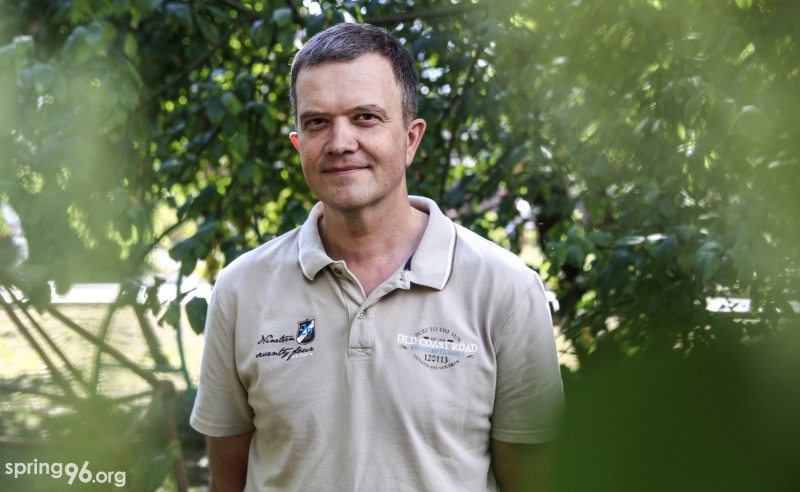
“They came to my apartment in Mahilioŭ in the morning. I was already awake. As soon as I heard footsteps on the stairs, I knew who it was. I woke up my daughter and wife, and after 5–7 minutes of knocking, I opened the door, and the search began. Despite the officers being polite, there was a feeling of disdain during these actions, which lasted even after the search: we couldn't bring ourselves to start cleaning for a long time. Some people walk around your flat and, wearing gloves, rummage through your belongings, looking in your underwear.
They took documents, notebooks, and for some reason, my old master's thesis on the role of civil society in democratic changes.
Overall, I managed to stay calm, and there were no big disputes. Only once, a police officer began to make cynical remarks about Marfa Rabkova, calling her an anarchist human rights defender. I responded, saying they were fighting a girl and proud of it. Then, during the interrogation at the special police department, I heard the officers walking through the corridors and mocking the Belarusian language. After six in the evening, they let me go. I felt empty as if you were squeezed like a dirty rag. I remember being happy just to be on the trolleybus home.”
Natallia Satsunkevich. A story about mom
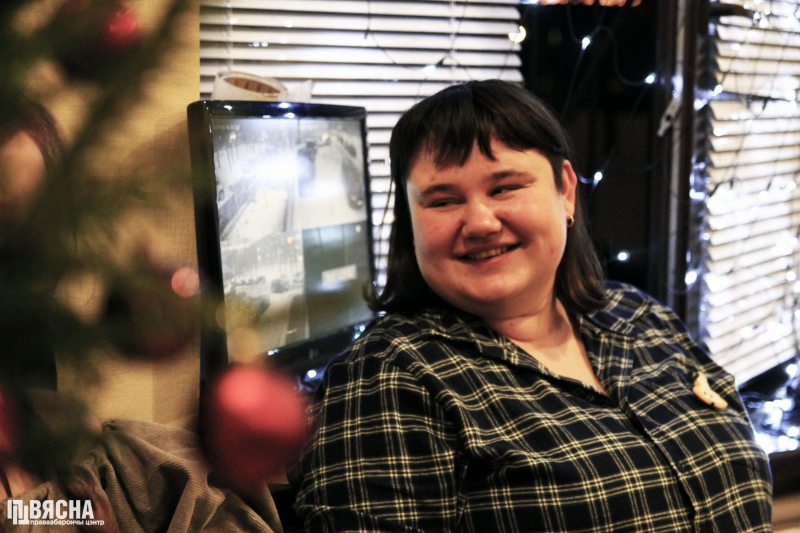
“I was on vacation when there were searches in our Homieĺ branch in February. So when they came to me, only my mom was home. She sat quietly for a few hours, but they noticed her on the balcony, and she had to open the door. They likely knew I was not at home, but they were persistent and then got angry that they were ignored for so long. I remember, all this time in Vilnius, I paced around the apartment and couldn't calm down: all I could do was sit and wait. But I knew I wasn't doing anything criminal, and my mom had nothing to do with my activities.
This incident explained a lot to her. It's one thing to read about how everything is unfair and quite another when people come to your house and take things away. None of my techs were in the apartment then, so they took my mom's, even though it was obvious that they were her belongings. Her computer and phone weren't even password-protected. We keep joking that the biggest regret is that Mum lost her phone game progress. Of course, it was stressful for her. I felt better when it was over and understood they didn't take my mom away. I tried to normalize her life as quickly as possible, for example, by buying the same phone model. Both my mum and I took the situation calmly, but she was still frightened by the doorbell for a long time. And the feeling of disgust when someone goes through your things, lingered for a while.”
Alena Masliukova. A story about unsent letters to political prisoners
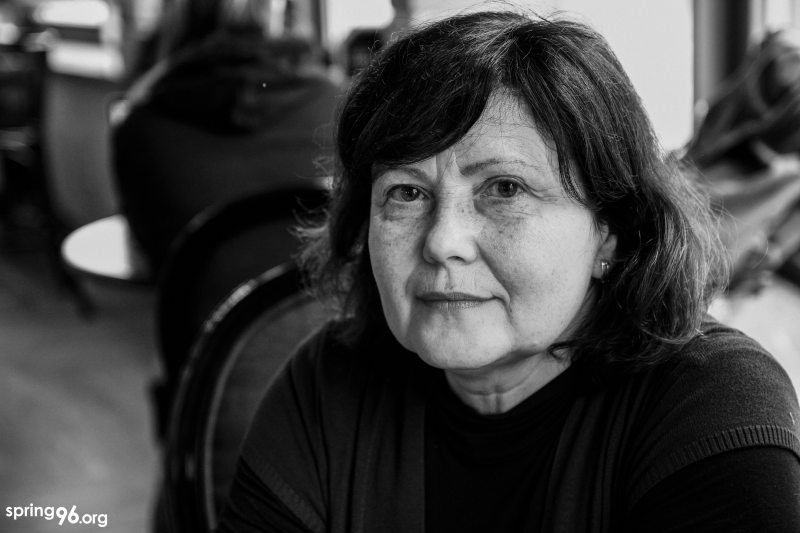
"That morning, I woke up very early in a cold sweat in my apartment in Svietlahorsk, having dreamed that I was being arrested. I tossed and turned for a long time but never fell back to sleep. So, when I saw the message from a colleague that they had come for her, I knew what to prepare for. I was planning to send letters to political prisoners in the morning, so I ran to the mailbox, but on the street, I heard someone addressing me in Russian. I stopped. Some man in plain clothes showed me his ID card, which I did not have time to read. He took four envelopes from my hand. I asked them to stop by the mailbox so that I could send the letters, but they took me straight to the district police department and then to search. My apartment was being renovated then, and the walls were stripped bare. The officers saw this and asked, 'So, will you paint the white-red-white flag on this white wall?'
The next day, Ales Bialiatski said, 'Perhaps you should go on holiday for a few months.’ My husband bought the tickets and took me to the airport. I experienced much more stress at the airport than during the searches. I was detained at passport control for additional screening. The customs officers looked at me sympathetically and said, 'You won't make this flight because we won't have time to do everything on the list.' They frisked me from head to toe; I even removed my shoes' insoles. I made it onto the plane at the last minute: the officer only handed my passport back after making a call somewhere; he turned it over in his hands in front of my face for a long time before handing it to the girl at the control desk. When I got on the plane, I could tell from the expressions on my neighbors' faces that tears were streaming down my face. To this day, I still feel uncomfortable in airports.”
Pavel Sapelka. A story about the daughter
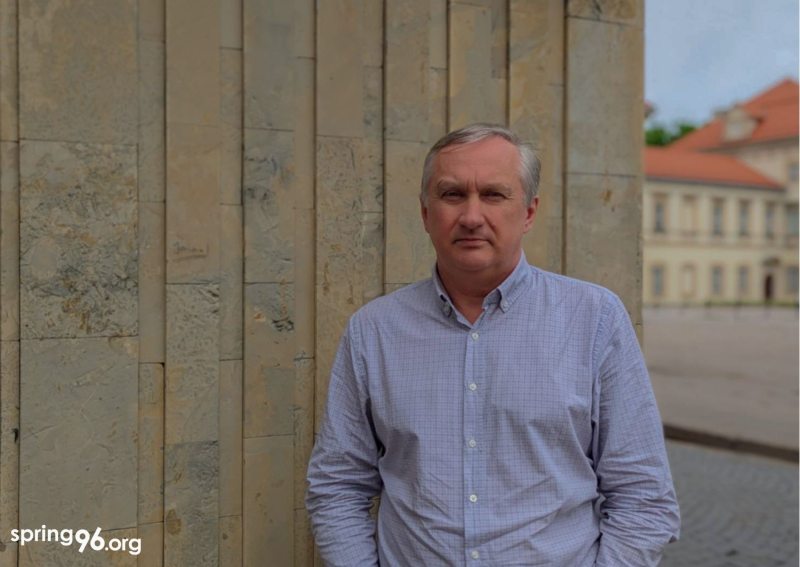
"We were awakened by a loud knocking and ringing at the door. My wife was afraid that our daughter would be frightened and quickly opened the door. Immediately, the flat was filled with all sorts of officers, including special forces in uniforms with automatic rifles. As they burst in and showed fake IDs, the child woke up. While they were rushing in and showing fake IDs, the kid woke up. We asked to let her and my wife go, but they wouldn't let us. The daughter wasn't even six years old at the time. She cuddled up to her mother and quietly watched everything.
All the rooms were searched. They even went through my wife's belongings and documents, even though she had warned them that they were covered by attorney-client privilege. My books on the history of jurisprudence and advocacy did not interest them. When it came to the tech, the group leader first politely asked for the password, and when I refused, he casually said that in that case, we would obtain it at GUBOPiK, using a "truth serum." The searches change your attitude to a place: the value of personal space disappears, and the rule "my home is my castle" ceases to apply. They photographed everything they found. The next day, I saw some of those pictures on state TV, they labeled us "so-called human rights defenders." That became the decisive argument for leaving the country: I understood it was a warning. And indeed, after that, it was already July 14th.”
July 14, 2021
Andrei Paluda. A story of two searches
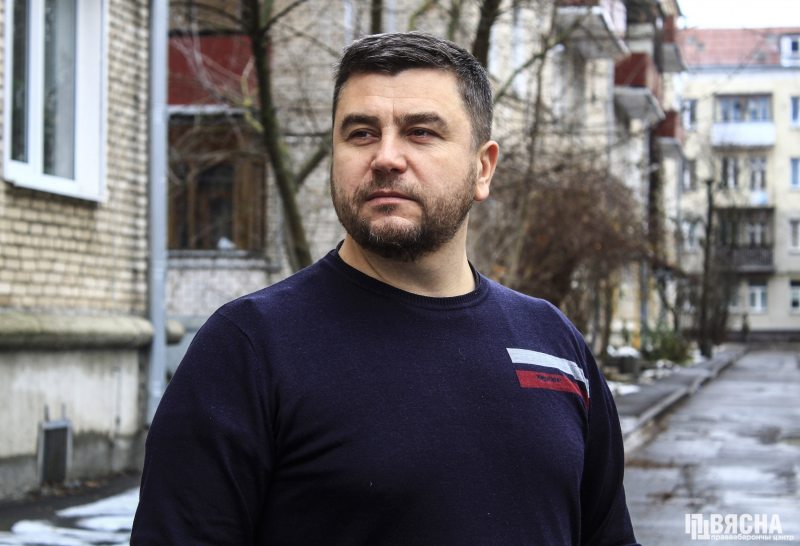
“During the searches in my apartment in February and July 2021, I did not open the door immediately. Both times before the search, the security bodies cut off the apartment's electricity supply. In February, in special equipment and used it to bang on the door. The noise was so loud that I thought the walls would collapse. When I realized that the door would soon be broken, I opened it. They rushed into the apartment, put me on the floor, and one of the officers stood on my legs. During the search, I was handcuffed all the time. In July, they did not use force before and during the search. They only put handcuffs on me when they detained me as part of a criminal case.
July 14th was a long day. First, the search at home, and then at the "Territory of Rights" site. There was so much literature, posters, stickers, and equipment that after several hours of searching, they realized they couldn't take everything out before the end of the working day, and sealed the room.
They took me to the Investigative Committee, then to the Akrestsina detention facility, where I spent three days. But even after all these experiences, I did not think of leaving. It seemed very important to me to stay in the country. Ales (Bialiatski) often spoke about this, and it seems—perhaps irrationally—that if they released you, you are no longer needed and won't be bothered anymore. But then I realized I would hardly get out if jailed for 15 days. That's when the decision was made to leave, and I was evacuated to Ukraine, where I encountered Russia's full-scale military invasion of Ukraine's territory. Despite all horrors, I remained in Ukraine for more than six months to assist Ukrainian human rights defenders in implementing humanitarian initiatives and participating in international missions to document war crimes.”
Siarzhuk Sys. A story about the password (not) written on a piece of paper
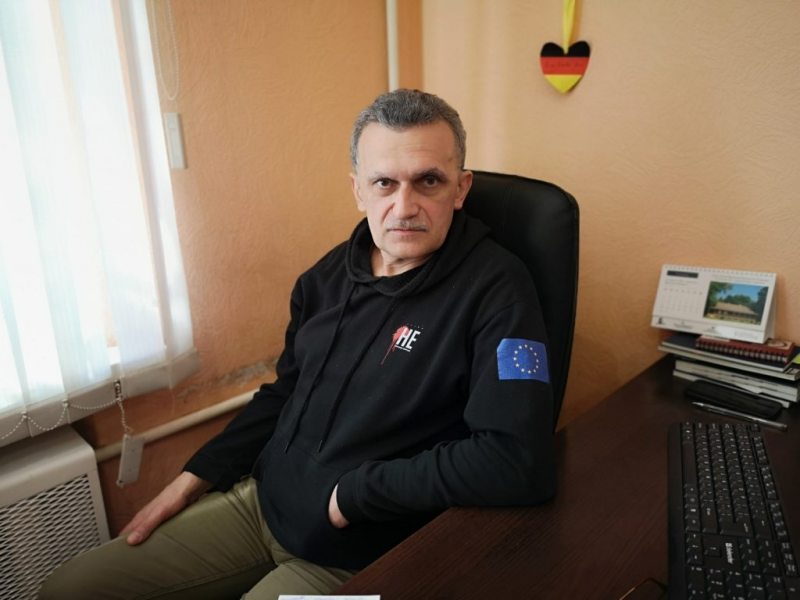
“That July I went swimming every day at six in the morning before work. But on July 14th, I stayed home. They came to our place first: around 6:20 am, they quietly entered the bedroom because we had forgotten to lock the door for the night. My wife didn't understand what was happening. They allowed her to get dressed and left an officer in the room who turned his back. They never left us alone: if I went for water in the fridge, they followed me. If I went to smoke on the balcony, they went there too. But was relatively polite.
They shut down my laptop and sealed it. Later, the investigator asked for the password, and I said I didn't know it since I always left it on due to my extensive journalistic work, but the officers had turned it off. A young officer told me that I wasn't the only one detained. He said, 'We took all of you.' And at first, I was relieved: it was not so scary when all of you were taken away. But then I thought, 'If everyone [is arrested], who will help us? Who will defend us?' I saw officers reading news about my arrest and was even proud when they said, 'You guys work so fast!'
Then there was Akrestsina. Despite previous detentions, this was my first time there. They put some well-built men in my cell, all complaining that they had no room because of the “white-red-white” [opposition] people. So, I admitted that my charge was economic, knowing that's what they had against me. Eventually, they were moved, and I was left alone – this vacuum was tough to bear. Finally, they took me for interrogation. The investigator chose me because he said we were from the same place. After a day of questioning, they released me to find a paper with the laptop's password, which didn't exist, and a whole team came with me. When they found nothing, they left, telling me to bring it the following day. The next morning, I left and never returned home.”
Liubou Lanina. A story of a passport that law enforcers seized
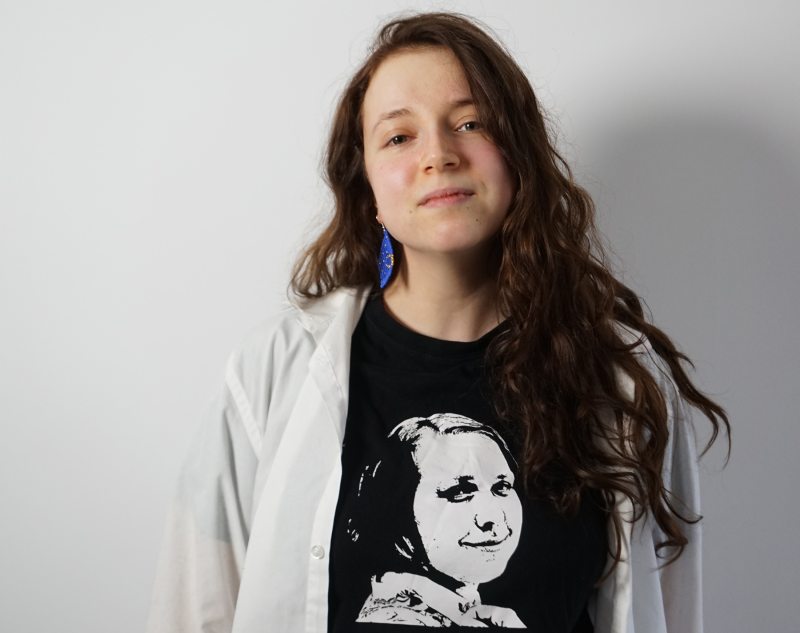
"Around 7-8 in the morning, my roommate woke me up, having seen the news about the searches. I was very anxious; one of my colleagues had sent an SOS signal, and I realized I might be next. That's exactly what happened. When my roommate left for work, I received another SOS signal from her. I went into the hallway and found only her slippers. I put them on, grabbed all my tech, notebook, and money, and hid outside the apartment. Later, I learned that security forces had mistaken my friend for me and took her into the apartment for a search. Back then, I had a puppy who couldn't be left alone. While I was hiding, I kept hearing her barking, then it stopped. That's when I knew someone had entered the apartment. Roxy didn't growl, so it must have been someone familiar. I was lucky and quickly left my hiding spot unnoticed, but only in the evening did I realize I had forgotten my passport. I hoped it was somewhere in the apartment, but my friends searched even more thoroughly than the law enforcers and couldn't find it. That's when I realized they had taken it. Later, I blamed myself for not grabbing it, but when I left the apartment, I had no plans to leave Belarus. I never returned there, and my passport only made its way back to me a couple of months ago.”
Alena Laptsionak. A story about a birthday interrogation
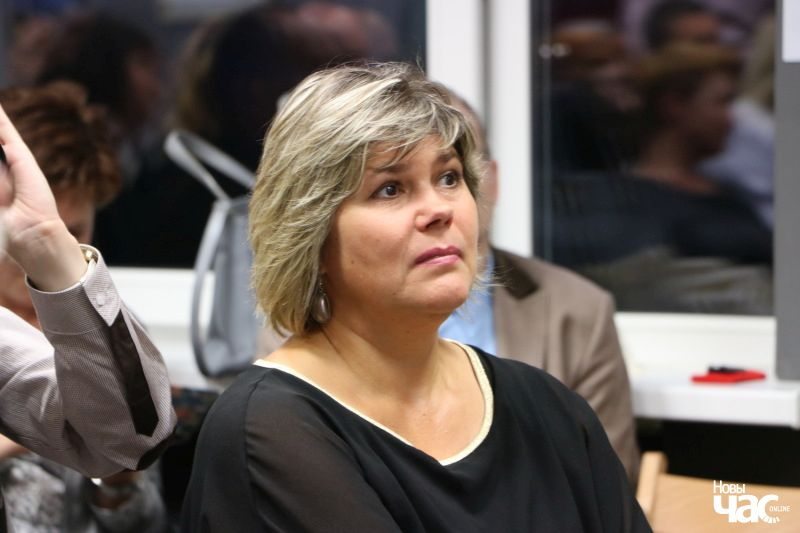
“That morning, it was hard to concentrate in the first few moments after waking up. Hearing a loud knock on the door, I dressed, made the bed, and ran to wake the children. My son was probably up late on the computer and struggling to understand what was happening. 'Why?' he asked. 'What do you mean why? Are you planning to meet them in your underwear? Hide your phones!' Then I received a call from an unknown number, asking me to open the door. When I heard 'four, five, six...' outside, I realized they would break down the door after ten, so I opened it. The search was conducted correctly; the group leader only raised his voice at the very beginning to let me know who was in charge.
Once at the Financial Investigation Department, I spent half a day waiting for what would happen next, as they said all the investigators were busy. When they took me to the toilet, I saw Uladzimir [Labkovich] in the corridor, looking very confused. I saw Valiantsin [Stefanovic] and Andrei [Paluda] in the offices, as the doors were open. At the end of the day, they took me to Akrestsina. A storm was starting, and the sky was overcast. I really didn't want to get caught in the rain since I had no dry clothes, so I jumped out of the car and ran to the detention center door. 'I've never seen a detainee run to the isolation ward like that,' my escorts joked.
The interrogation took place on my birthday. For breakfast, they brought porridge with bread and tea. I thought, here's my treat; tears flowed freely, a lump rose in my throat, and I couldn't swallow. I just sat over the plate, blankly examining its contents. I was released after three days and spent the whole time thinking about what to do next. The decision to leave was agonizing, and now the repression in Belarus strongly affects my mental state. 'The heart hurts to think about the homeland.' How could it not? The soul longs for nothing but Freedom."

















